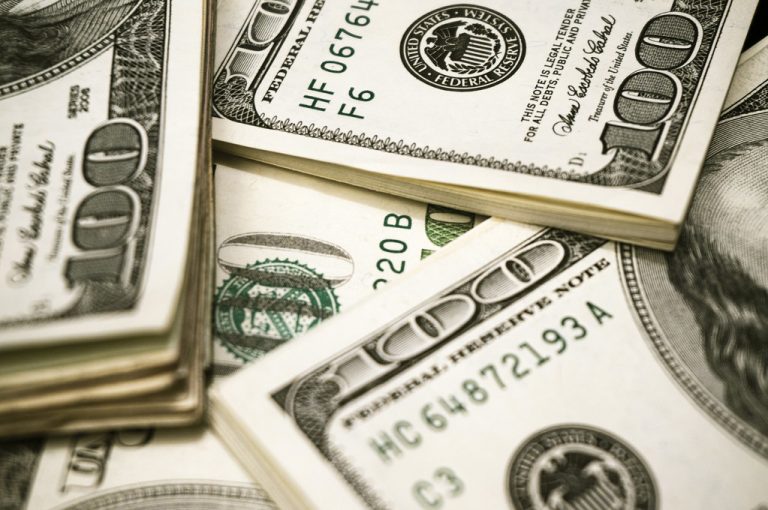
Friday the 13th: How it came to be and why it’s considered unlucky

The fear of 13 dates back centuries and many believe it originates from the Code of Hammurabi which reportedly left out a 13th law from its written legal codes. However, in reality, this was actually just an error made by one of the translators who simply omitted a line of text.
Such superstitions have persisted even among history’s greatest minds. The great Austrian-American composer Arnold Schoenberg had such a severe case of triskaidekaphobia (the fear of the number 13), he omitted numbering the 13th measure in some of his later works, substituting it with the notation “12a.” He was also reportedly deeply afraid of dying on a year or at an age that was a multiple of 13. When he turned 76, a colleague suggested it would be an unlucky year because 7+6=13. Indeed, Schoenberg did pass away that year, on…wait for it…Friday the 13th of July, 1951.
It is interesting to note the contrasting history of the number 12 with the number 13. We have 12 months a year, 12 zodiac signs, 12 hours a day and even 12 days of Christmas — the prominence stemming from the historical influence of the New Testament of the Bible and other Judeo-Christian traditions. Even Schoenberg, the number 13’s greatest enemy, was best known for developing a 12-tone system of musical composition.
Why Friday?
The negative association with Friday specifically has a combination of religious and cultural origins. Some Christians believe Friday to be unlucky because it was the day of the week that Jesus was crucified. In the 14th and 15th centuries, prominent figures and writers started to publicly denounce the day with little context as to why. George Chaucer’s “Canterbury Tales” depicts Friday to be “a day of misfortune” and playwright Robert Greene defined “Friday-face” as “a sad look of dismay or anguish.”
Why Friday the 13th?
Unsurprisingly, we are not exactly sure of the historical evidence as to how Friday the 13th became synonymous with bad luck and superstition. There are many theories that date back to earlier centuries, but most of them have been completely debunked.
The real Friday the 13th hysteria started in the 20th century. Many date this back to Thomas Lawson’s book “Friday, the Thirteenth” which is about a stockbroker who chooses this day to deliberately crash the stock market. One year later in 1908, The New York Times became one of the first media outlets to acknowledge the superstitions of Friday the 13th. Later in the 1980s, the popularity of the “Friday the 13th” movie franchise added to the cultural phenomenon.
Friday The 13th, Is This Creepy Day As Unlucky As Some Believe?
Some believe that the Friday the 13th superstition has an origin in Norse mythology. In one story, the evil god Loki is said to have crashed a party with 12 guests and tricked the blind god Hod into killing his brother Balder, the god of light, joy and reconciliation.
Also, according to Norse mythology, it was the Vikings who decided a hangman’s noose should have 13 loops and in British tradition, Friday was the conventional day for public hangings, and there were supposedly 13 steps leading up to the noose.
Others believe Friday the 13th has origins in Christianity. According to the Bible, Jesus was crucified on a Friday, and there were 13 men at the Last Supper — Jesus and his 12 disciples. In addition, Judas the disciple who betrayed Jesus, was the 13th to sit at the table and, for that reason, 13 is considered to carry a curse of sorts.
At some places it is also believed that it was Friday the 13th when Eve tempted Adam with the forbidden fruit.
Another significant piece of the legend is a particularly bad Friday the 13th that occurred in the Middle Ages. On this day in 1306, King Philip of France arrested the revered Knights Templar and began torturing them, marking the occasion as a day of evil. Both Friday and the number 13 were once closely associated with capital punishment.
Is Friday the 13th bad for your health? The psychology of luck explained
The superstition is thought to date back to the middle ages, when both Fridays and the number 13 were considered unlucky. In Christian theologoy, there were 13 diners at the last supper before Jesus was crucified on a Friday. However, the first reference of these two unlucky concepts being combined into an unlucky date doesn’t actually crop up until 1869.
The last Friday the 13th of the decade: Here’s why it never fails to freak so many of us out every year
Every year we have at least one Friday the 13th, which is seemingly the most inauspicious day on the calendar. This Friday the 13th happens to be the last one of this decade, so we thought we’ll take a look at why there’s such a bad name associated with it.
Part of it can be traced to the number 13 itself. The number is feared by so many people that there is, in fact, a specific term for the phobia: triskaidekaphobia.
Where does that fear originate from? Many historians claim it stems from the Code of Hammurabi, a well preserved Babylonian code of law of ancient Mesopotamia, which reportedly left out the 13th law from its written legal codes. However, that turned to just be an error by one of the translators who omitted that line of text.
Another theory has to do with the Last Supper, where 13 Apostles sat at the table with Jesus. From the 1890s, a number of English language sources seemingly started relating the number with bad luck.
They stated that Judas, the Apostle who betrayed Jesus, was the 13th to sit at the table, though the Bible itself says nothing about the order in which they sat.
But then, why Friday and not any other day of the week? This mostly has to do with a combination of religious and cultural origins.
Religiously, it had mostly to do with Christians, who considered the day to be an unlucky one because it was the day Jesus was crucified.
Triskaidekaphobia On Friday The 13th
Well, the number 12 is considered a “perfect number” by mathematicians and adding one more could be considered making a perfect number unlucky.
Also, it is believed that Jesus was crucified on Friday and several late 19th Century English language sources relate the “unlucky” number thirteen to the Last Supper where Judas, the disciple who betrayed Jesus, was the 13th to sit at the table.
So the combination of both Friday and the 13th came to become considered an unlucky superstition, particularly in the United States and the United Kingdom.
The Friday the 13th superstition is so prevalent in the U.S. that many hotels and high-rises skip the 13th floor altogether.
Why is Friday 13th unlucky? Where the superstition around the date comes from – and how often it falls
There are various theories about why Friday 13th is considered an unlucky date. Throughout history, both the number 13 and the day of Friday have been considered unlucky, so combined the bad luck is magnified.
Some attribute the superstitions around Friday 13th to the story of Jesus’s last supper and crucifixion. The painting of The Last Supper by Leonardo da Vinci presents 13 people in the Upper Room on the 13th of Nisan Maundy Thursday, the night before Jesus’s death on Good Friday.
However it’s been argued that there’s no record of Friday and the 13th being referred to as unlucky before the 19th century.
In Henry Sutherland Edwards’ 1869 biography of Italian composer Gioachino Rossini, who died on Friday 13th November, it’s documented that Rossini regarded Friday as an unlucky day and the 13th as an unlucky number.






